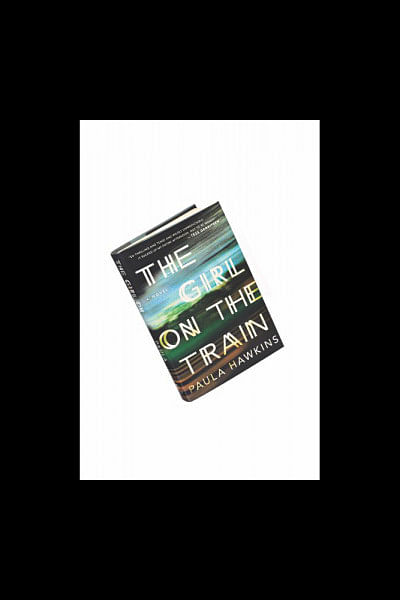Don't stop at this station

Paula Hawkins' bestselling thriller, "The Girl on the Train", was something I was looking forward to because it was supposedly comparable to Gillian Flynn's Gone Girl - a thriller that blew our minds off. Nonetheless, the expectations fumbled as I gave it a read.
The story circulates around the points of view of three women – the main protagonist Rachel, and two other supporting characters. At first, the shifts in perspectives shake up the interest but that dissolves after the first few chapters because of a monotonous tone to all three characters. The language is simple, just like any other contemporary novel. However, avid readers expecting a good dose of literature would be disappointed because no enthralling play of words has been done.
Reading with a right mind, the protagonist is a desolate woman in desperate need of help. The book starts off with a divorced 30 year old facing midlife crisis, accompanied by a drinking problem. The two other supporting characters – Megan, the victim, and Anna - are not given much description, making it difficult to visualise the entire scenario. Moreover, the characters have not been built up, just merely introduced to the reader when necessary, taking away any sense of familiarity to the roots of the story.
The plot begins when Rachel travels to London to uphold her lost working status in the eyes of her landlord and starts to imagine the life of a couple she observes every day through the train window. So, when she sees the wife cheating on the husband and going missing the next day, she takes it upon herself to help solve the matter. To add to the storyline, the only thing she could relate with them was that they lived a few doors down of her ex-husband and his current family.
At several points through the book, the story is manipulated into the protagonist ending up losing control of herself because of her alcohol addiction. Her cries about mental instability are dressed up as stubbornness, justifying lying to the missing lady's husband, and taking police matters in her own hands. This gives off negative vibes about the protagonist, and once the reader has turned enough pages, there is a rising frustration because of how an entire mystery is clouded because of alcoholism.
So, when it comes to finishing the novel, it is just for the sake of doing so. The reveal of the convict was not much of a surprise after having read multiple novels of the same kind. The ending, too, seemed reluctant to merge into the entire story.
Therefore, with philandering habits dominant in the story, anyone would feel compelled to cheat on reading The Girl on the Train because when it comes to mystery thrillers, it is all but a weak player on the shelf.
Zarin Rezwana is a weird potato trying to be a French fry. Send help or send ketchup at [email protected]

 For all latest news, follow The Daily Star's Google News channel.
For all latest news, follow The Daily Star's Google News channel. 



Comments